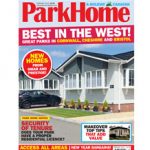Park home owners are sometimes unclear as to whether their home is protected under mobile homes law*. Such protection depends upon whether the site is a residential site, a holiday site or a mixed use site.
This article examines the differences between these types of sites and the rights of park home owners. We will also provide commentary on a recent Upper Tribunal (Lands Chamber) (“UT”) case on mixed use sites.
Residential sites
Mobile homes law gives a number of rights and protections to park home owners who occupy the home as their only or main residence if it is situated on a protected site. A protected site is a privately owned park where the relevant planning permission or site licence allows the land to be occupied wholly, or in part, for year-round residential use. The rights include the home owner being entitled to receive a Written Statement containing the main contractual terms between the site owner and the park home owner.
Holiday sites
Where the planning permission permits only holiday use or restricts occupation for a specified period, for example 11 months of the year – the occupiers will not be protected by Mobile Homes legislation. However, the site owner is still required to obtain a site licence by applying to the local authority.**
LEASE does not provide advice on Holiday Homes, but you can get advice from solicitors who specialise in this area or by contacting NACO, the National Association of Caravan Owners.***
Mixed use sites
A mixed use site is one which is licenced for both residential and holiday use, in other words it is a permanent residential site on which residence is permitted throughout the year, but which also includes holiday home pitches. It may be regarded as a protected site if there are no restrictions concerning its usage.
How the legislation
applies to mixed-use sites
A mixed use site is also subject to the licensing provisions within the 2013 Act, according to Government guidance – see the Department of Communities and Local Government Paper entitled ‘A Guide for Local Authorities on setting licensing fees’. ’The guidance says that sites which are of mixed use fall within the definition of relevant protected sites.
“Relevant protected sites” have a similar definition to “protected sites” within the1983 Act .The difference is that a “relevant protected site” does not include a local authority site. The definition specifies that the site must not be exclusively for holiday use or subject to conditions which prevent homes being stationed permanently.
Guidance from the Ministry of Housing, Communities and Local Government (MHCLG) entitled “Definition of Relevant Protected Sites” provides that the licensing regime only applies to relevant protected sites. The guidance specifies the type of sites that are covered by the 2013 Act.
It provides that a mixed use site is a relevant protected site as the consent is not exclusively for holiday use.
There is an important exception to this rule, namely that if a holiday site has permission for residential use but that use is only by the site owner (including family members) or employees working on the site – their permanent occupation, does not make the site a relevant protected site.
However, if an employee occupies the home under an agreement to which the 1983 Act applies, the employee will be a residential occupier and the site will be a “relevant protected site”.
INFO POINT
Rawdon Crozier is a direct public access barrister and mediator practising from KBG Chambers (www.kbgchambers.co.uk Tel. 0845 308 155, clerks@kbgchambers.co.uk).
Ibraheem Dulmeer is a solicitor advocate (civil) with the Leasehold Advisory Service. The Leasehold Advisory Service provides free advice on residential park home matters.
If you have any questions regarding the information in this article, contact LEASE on 020 7832 2525 or email: info@lease-advice.org. The LEASE website: https://parkhomes.lease-advice.org/ also carries guidance and reports of tribunal decisions, which may be of use.

Read the full story in the February 2019 issue of Park Home & Holiday Caravan



